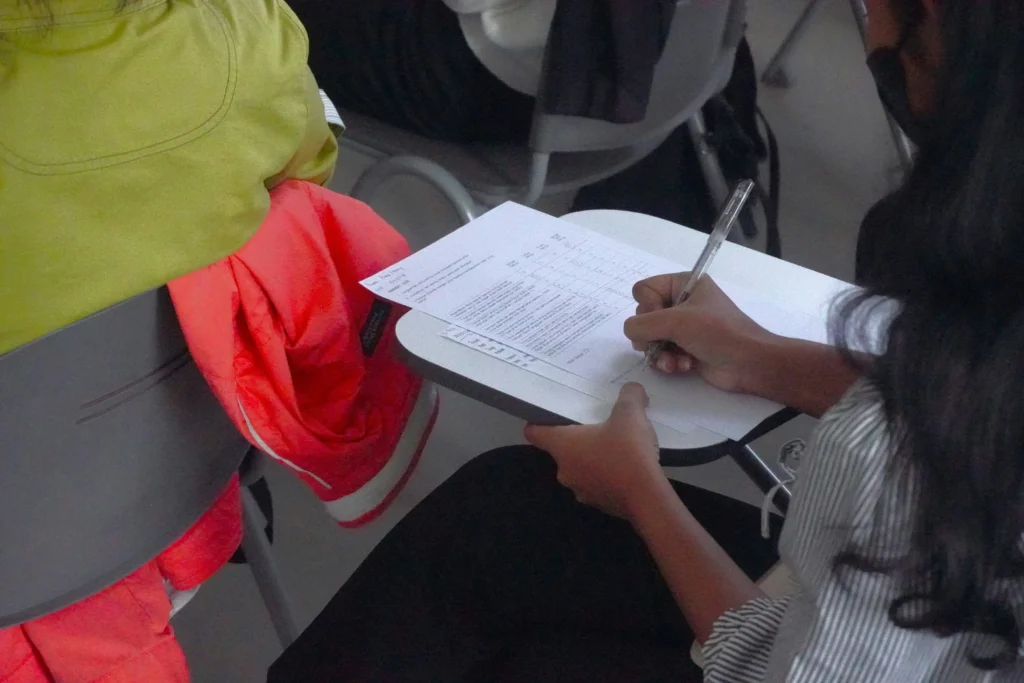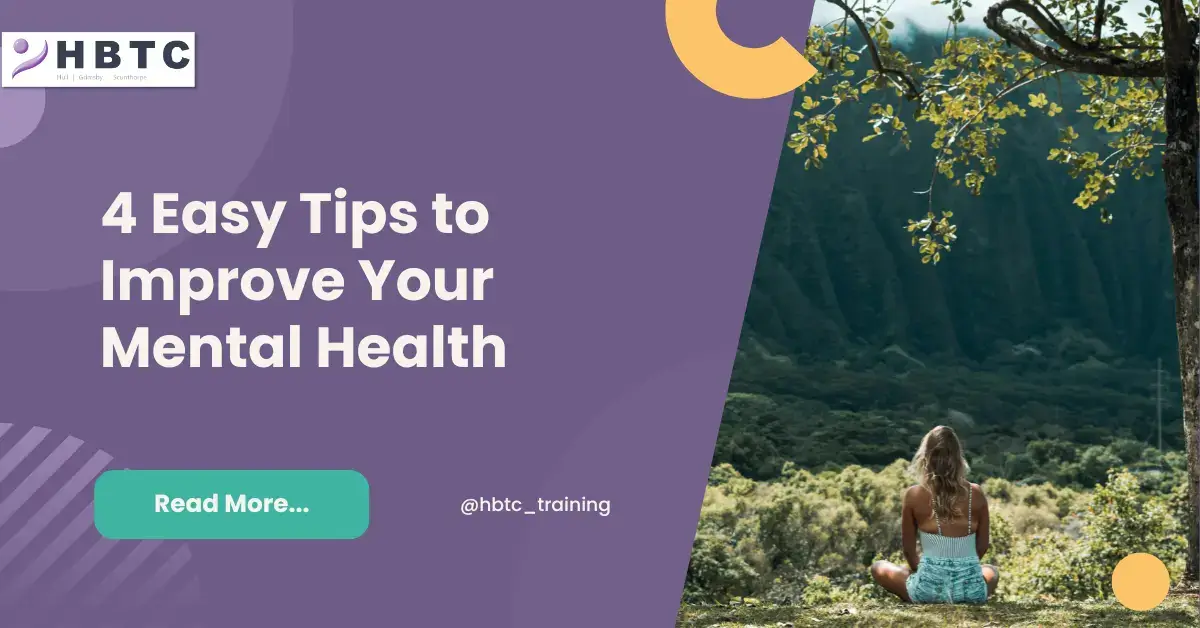Staying Mentally Strong During Exam Season: A Guide to Avoiding Stress, Anxiety & Burnout
Whether you’re sitting your GCSEs, navigating university finals, or preparing for an apprenticeship assessment, exam season can be tough. Long days of studying, pressure to perform, and the fear of failure can all take a toll, not just on your energy but also on your mental health.
Feeling stressed about exams is completely normal. Stress is your body’s natural way of helping you stay alert and focused. But when that pressure builds up too much or lasts too long, it can lead to anxiety and burnout.
Let’s talk about how to spot those signs early, take care of your mental health, and keep a healthy balance between doing your best and being kind to yourself.
Recognising the Signs of Exam Stress
Exam stress can show up in different ways. You might notice:
- Feeling anxious, nervous, or low
- Difficulty sleeping or constant fatigue
- Trouble concentrating or staying motivated
- Irritability or emotional outbursts
- Headaches, upset stomachs, or feeling physically unwell
- Changes in eating habits
- Negative thoughts or low self-esteem
- Losing interest in things you usually enjoy
If any of these are starting to take over your daily life, it’s important to pause, check in with yourself, and take action.
Tips to Avoid Burnout and Manage Exam Anxiety
1. Make a Realistic Study Plan
Don’t try to conquer every subject in one day. Break your revision into manageable chunks and spread it out over time. A good plan should help you feel in control, not overwhelmed. It’s okay to adjust it as you go. Progress is better than perfection!
2. Take Regular, Guilt-Free Breaks
Your brain needs rest to absorb and store information. Take short breaks every 25–30 minutes. Use the time to stretch, move around, or do something calming.
3. Prioritise Sleep
You might feel tempted to stay up late and cram in the work, but consistent sleep is crucial. Aim for 7–9 hours a night. A rested brain works better, remembers more, and handles stress more easily.
4. Eat to Fuel Your Mind
Try to eat balanced meals that give you long-lasting energy, such as whole grains, fruit, vegetables, and protein. Avoid too much caffeine or sugar, which can cause energy crashes or affect your mood.
5. Keep Moving
You don’t have to do an intense workout. Even a walk, stretch, or dance break helps release endorphins and clears your head.
6. Practice Calm
Try breathing exercises, meditation, or mindfulness apps. Even five minutes can calm your nerves, especially before bed or before an exam. Free apps such as https://www.smilingmind.com.au/ are beneficial.
7. Talk About It
If you’re feeling under pressure, whether from family, teachers, or yourself, speak up. Let someone know how you’re feeling. A trusted friend, teacher, tutor, or mental health service can offer support or help adjust expectations.
8. Stop Comparing
Everyone revises differently. Try not to compare how much you’re studying to others, it can fuel unnecessary stress. Focus on what works for you.
9. Set Boundaries
Know your limits and protect your downtime. If life outside of study is hectic (family responsibilities, relationships, or other stresses), it’s okay to say no or take time out to recharge.
10. Celebrate Small Wins
Finished a topic? Completed a past paper? Great! Reward yourself. Positive reinforcement helps keep you motivated and reminds you that you’re progressing, even if you can’t see results just yet.
Self-Care Isn’t a Luxury, It’s a Necessity
When you’re deep in revision mode, self-care can feel like a waste of time. But the truth is: rest helps you work better. Whether it’s gaming, reading, going outside, or seeing friends, doing something you enjoy can reset your mood and recharge your motivation.
Life Doesn’t Stop for Exams
Sometimes, life throws curveballs like family issues, moving house, breakups, and health worries. It’s okay if you’re struggling. You don’t need to face it alone. Talk to someone you trust, or contact a support service.
There is no shame in asking for help.
If Results Day Doesn’t Go to Plan
Exams can feel like everything, but they’re not the end of your story. If you don’t get the results you hoped for, remember:
- You are more than a grade. Your personality, creativity, resilience, and kindness can’t be measured on paper.
- There are always other paths. You can reset, explore new opportunities, or take a different route to reach your goals.
- Failure is not final. Many successful people didn’t follow a “perfect” academic journey.
Make a list of the things that bring you joy, your strengths, and what you want for your future, beyond exams. You’ve got time, support, and options.

Helpful Contacts & Resources
- Samaritans – 24/7 confidential support
Call 116 123 | ✉️ jo@samaritans.org | samaritans.org - Exam Results Helpline (UK) – Advice on next steps after exam results
Call 0800 100 900 (Available in August) - National Careers Service – Help with education, work, and training decisions
Call 0800 100 900 | https://nationalcareers.service.gov.uk/
At HBTC, we have a list of different resources listed here: https://www.hbtc.co.uk/support/ on our website.
Conclusion
Exams are important, but so is your health. You’re not a machine, and pushing yourself to the limit won’t help you perform your best. What will help? Balance, self-compassion, and knowing when to pause.
Your future is full of possibilities, and you deserve to arrive there mentally strong and well.
Good luck to those taking exams or assessments, you’ve got this!
You may also be interested in…

Emily Simpson
Emily is our Digital Marketing/Learner Engagement Apprentice and is involved with all things social media and content development. She is also responsible for attending career events and maintaining relationships with local schools and colleges.


